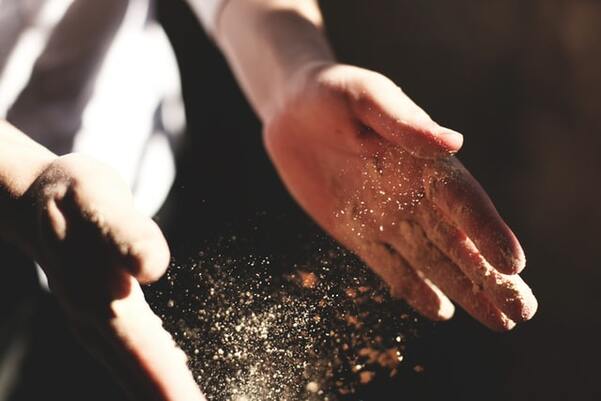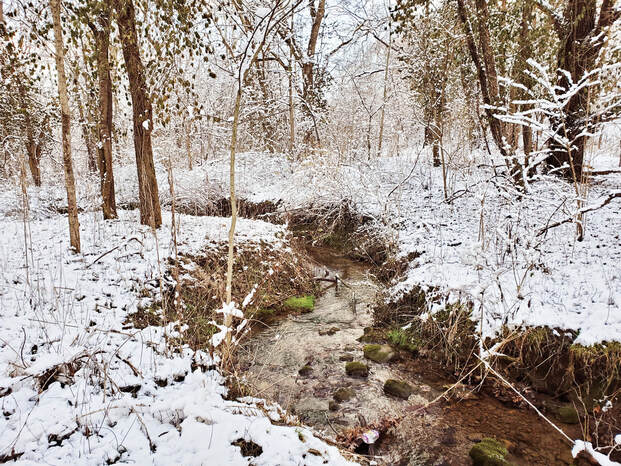|
We are dust, you know?
It need not be a churchy thing, to think about this. It need not always be marked on our heads, the dark stain of our living and someday dying. It is a thing we know in our bones, maybe especially when we have been sequestered for going on a year that feels like many more. Do we need to cover our faces with dirt, when already they are masked when already we know that even breathing can be a dangerous business in these frail human forms? We are plenty practiced in rending our hearts, have scattered ashes far and wide to the very ends of the earth. We are covered in dust. Have been daily called up into this knowing of our eventual end. We are marked. We are reminded. This season is redundant. And what can we give up or lay down that has not already been taken? What small joy or comfort has not already been added to the long list of things unsafe, untouchable? And yet, we lean towards a dim winter light that lingers near the corners where two dark lines cross in the middle. And let the artist's stroke tell the story of all the miraculous life that dwells in dust and darkness all the beginnings marked by ashes and the endless wonder of having nothing left to lay down.
1 Comment
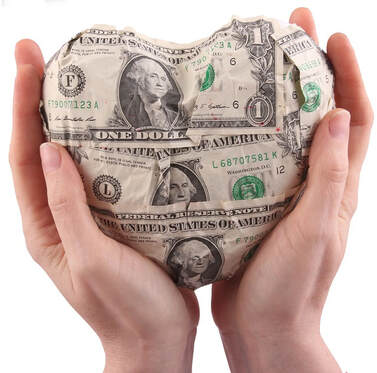 Americans will spend about 21.8 Billion dollars buying Valentine's stuff this year. That's nearly $4 billion more than it was last time I looked up that number, about 4 years ago. When I think about what we could do, collectively, with nearly $22 billion, it boggles the mind. No, scratch that-- it literally breaks my heart. For one thing, it would cover our National Parks budget for about 8 years. Or fund the National Endowment for the Arts for a few decades. How many hungry children could be fed? Student loans forgiven? Refugees resettled? We could make a longer list, but you get my point- we have the resources in this country to do so much collective good; to meet so many needs; to solve so many complex problems. But when you come right down to it-- our hearts are just in all the wrong places. Valentine's Day itself is not the problem. A holiday designated for love? Sure. Fantastic. But... when did “love” get saddled with all this stuff? Billions and billions of dollars worth of stuff? I’d venture that most of the billions are spent on flowers, jewelry, stuffed animals, and any other number of things that come in the shape of a heart. Which, by Monday, will be marked down 80% at Walgreen’s and Target and every other store in America. Not long after that, much of it will be in a landfill. This holiday is just one of many that draws attention to our consumer sickness. That sickness is big, and multi-layered, and it’s not Saint Valentine’s fault. It’s also not the fault of Baby Jesus or the Easter Bunny; or Saint Patrick, the Great Pumpkin or Uncle Sam. On every one of these days, we wade through the sea of sugar and cheap plastic crap that will ultimately flood the landfills we use to hide our addiction. The dam will only hold for so long. So there’s an environmental concern, and a sweatshop concern. But more than anything, there's a heart concern, underlying all the paper and diamond ones. The real emptiness that might make us feel like we *have* to buy this stuff, or else we have somehow failed at the whole love thing. More to the point, this is an illumination of the scarcity mentality… The one that tells us we cannot possibly afford to insure all of our children–or educate them, or provide them with clean water and air, or protect the resources for their retirement someday–when clearly, we have all the money in the world to spend on… What, exactly? Another engraved picture frame? Another charm for that bracelet? Another bear holding a heart? (What can I say, SNL gets it). Can we fix all of these complex problems by abstaining from flowers and stuffed animals today? Maybe not. But practicing a bit of mindfulness about our own spending and gifting can go a long way to change our thinking about what is needed, what is important, and what is worthwhile. And that shift might, in turn, change our thinking about what we can, and cannot afford… As a family, as a country, and as people who have to inhabit this earth together long after the landfills overflow and the rivers run dry. Here are a few ideas for how to celebrate this day of love without breaking the bank–or contributing to our collective national junk pile.
This is modified for COVID times from a post that originally appeared on Patheos. 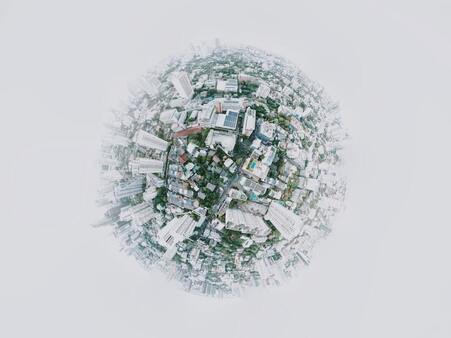 How’s your creative energy these days? Mine is in the tank. I hear that’s going around. The guitar I bought last summer has not been touched in months. I have little bandwidth for reading. I cook the same rotation of things for dinner pretty much every couple of weeks. Playing with my kids? Forget about it. (An as-yet unnamed grief for me in pandemic times is that I started it with two kids, but will emerge on the far side of it with two tweens/almost teenagers. Like all of us, they have grown up fast this year.) I spend time with them, yes. But anything that could be construed as creative ‘play’ has mostly left the building. Not only are they on the verge of being too big for such things-- I just don’t have it in me to pretend things these days. That part of my brain is off the clock. As for writing-- I’ve tried explaining to friends and fam why I have chronic writers block when, in theory, I should have all the time in the world to write. I have no travel, no daily commute, no social engagements, no evenings and weekends spent running kids to endless activities, and few of the errands that can consume us in normal times. I’ve been stumped. It makes easy sense, at some levels. I read somewhere that the part of our brains usually devoted to creativity is now devoted to processing endless changes to our ‘normal,’ facing a relentless string of daily decisions in this new reality, and, you know, staying alive during a global pandemic. Not to mention that the 4 people in this house are almost always in this house. One of them frequently banging on drums. So there’s that. Still. I look around my house and think to myself: I’m always HERE, why can I not spend a few hours a day doing this thing I love? And then it occurred to me-- I’m always HERE. But what I write about is OUT THERE. Just as I dearly love to read a book that has a strong sense of place, I also write with a sense of place. Both content and form are shaped by my physical location, in more ways than one. It is, in part, about geography: I am a different writer in one landscape than I am in another. When I lived in Arizona, the desert itself found its way into my voice, in some ways that stayed with me and some ways that I lost when I left. Living in Kansas, I never really connected with the Midwest scenery in the same way; but what I wrote was still profoundly shaped by the people around me and the community where I lived. Beyond that, I had physical spaces in which to write. A favorite coffee shop, a favorite bar, a favorite corner of the library.... I had quiet places, and places with a low hum of activity. Even when I was not writing, I was places- church, the gym, my kids’ school, people’s homes, hospitals, bars and restaurants, my daughter’s dance studio, my son’s baseball practice… Our days were an endless cascade of nouns! People and places everywhere. I may not have been writing about the places, but I was writing from them. When we moved back to Kentucky, I was back to the climate, geography and culture that I knew in my bones. But working from home, I had to try a little harder to be out among the folks. I found a favorite coffee shop, a favorite corner of the library. A place to sit at church while I was waiting for the kids to be done with an activity. A two hour window of time to myself every Saturday while my daughter did her theater thing. And, of course, there was travel. Lots of it. Over the course of a decade, from this litany of locations, I wrote two books, hundreds of sermons, and nearly a thousand blog posts. Who knew there were so many words in the world? And now I am always… well, HERE. I know what a privilege it is to be able to work from home, to be fairly sequestered in this place to stay healthy and keep others safe as well. I also know that this is all temporary. In the meantime, it helps my spirit tremendously to be able to name why we struggle to find creative space --when much of our lives are situated in a single place. Despite my recent lack of focus, I did recently finish reading News of the World, by Paulette Giles. I saw the movie trailer, and well, you had me at Tom Hanks. Being a strong believer in finishing the book before starting the movie, I powered through the whole thing. I’m a sucker for a good Western anyway, but this one just resonated deeply. The story itself is a great one, but more than that, I loved the landscape and the premise. In the post Civil War frontier of northern Texas, Captain Jefferson Kyle Kid travels from one small town to another, and he reads people the news. He curates selections from multiple publications, and people pay to come hear him read these stories. It’s a great reminder that, well before the days of the 24-hour news cycle, the globalization of everything, and tiny devices that put the whole world at our fingertips, people-- many of whom could not read, and would never travel beyond their own county line-- craved a glimpse of the outside world. To hear those stories was an escape, yes, but it was something else. A connection to something much bigger, in a world that must have felt very small. These days, our worlds have gotten very small again. And in many ways, that’s not entirely a bad thing. But something primal remains in our being that wants to be part of a bigger story. So just know, when you have trouble creating in your own space--which is likely the single space in which much of your life takes place these days-- that the longing for the story is, itself, the spark or creation. It is often drawn out by the people and places you orbit. But the essence remains, even when your orbit gets much smaller. I have no magic formula for drawing out that creativity when time and space is acting against it. But remember that whether you are struggling to play your music, or paint your picture, or bake your masterpiece, or play cowboys with the kids and their stuffed animals... that story is still there, and will be called out in its time. The same creative energy that formed the world--that separated light from darkness and called up life from the depths of the earth-- it still moves, and moves in you. However quietly it might be stirring at the moment. I will keep trying to write small things from the small world I inhabit these days. I will write about bread, and winter, and things that give us life while so much of it is standing still. I will write from memories of the desert, and long roads that used to call to me regularly, and are still out there somewhere. I will write about the people in my small orbit, and the news from this small corner of the world. How about you? What are you creating these days? Or what is creating space in you?  Whether we are team Marvel or DC; Jedi or Enterprise; Potter or Percy Jackson, we all have our favorite hero stories. And don't get me wrong, I love them too. These stories, and the worlds in which they take place, are filled with joy, hope, and glimpses of the extraordinary. But for us everyday mortals, the love of the extraordinary can be a problem. You’ve probably seen the story going around about the high school principal in South Carolina who works the night shift at Wal-Mart, donating his paycheck to students and families in need. This story has gone viral, and is billed as a ‘feel good’ feature in the newsfeeds. But I find way too much about the backdrop of this story troubling to feel good about it. That is not to diminish in any way the incredible kindness and sacrifice of this dedicated educator. I’m just concerned about how readily we laud such individual acts of mercy, without questioning the corporate realities that make such acts necessary. We celebrate a man who will jump into a chasm of need-- but we don’t jump to close the chasm. Furthermore, we celebrate the employer for donating $50,000 to the local high school; without acknowledging that employer’s role in creating the chasm in the first place. The reality is that a company with the reach and resources of Wal-Mart could help create meaningful solutions to complex social issues if they wanted to… but they don’t. For starters, as a baseline minimum, they could pay their employees a living wage and interrupt the cycles of poverty. But they don’t. Another layer of reality here is that educators like Principal Darby are, themselves, underpaid. Because we (the collective “we,” and the representatives we elect) have systematically defunded public education for decades. This means not only that our educators are not valued as they should be; it means, also, that generations of adults are not equipped with the tools they need to be successful in this economy so fraught with chasms. In such an economy, we are eager to celebrate a wealthy philanthropist for donating a million dollars. Which is the equivalent of you or me throwing some change in the [insert local cause] jar at the Circle K. Is our heart in the right place when we drop those dimes? Sure. Did it truly cost us anything to make that donation? Not really. We marvel at the benevolence of billionaires. But we don’t ask that billionaire to look into the chasm--that growing divide where a few at the top of the food chain have more and more power, while untold millions go hungry. We scarcely want to look into that chasm ourselves. It feels better, of course it does, to read the feel good stories. Seeking emotional satisfaction over economic reformation, we put band-aids on amputation sites. We are led to build more temporary shelters and emergency relief programs instead of seeking lasting solutions to poverty. We value individual acts of mercy over communal acts of justice. I have a theory that this dynamic is related to the American bootstraps narrative, that toxic fairy tale that everyone has the same chances, and begins at the same starting line… and if we just work hard enough, we, too, will find our fortune. Those who live in need must be somehow lacking in their effort or worthiness, right? Meanwhile, the (diminishing number of) middle class folks emerge as the heroes of our own stories. In the spinning of this particular tale, we don’t just seek a savior; we also want to be one. At the personal/individual level, of course. Where this gets messy is… well, if the bootstraps narrative were real, we wouldn’t need heroes at all. Everyone would have enough, and we could go about practicing individual kindnesses without the need for radical social transformation. It’s complicated. What I know is that people like Mr. Darby, and anyone else who works and lives and gives to make their communities a better place, should be celebrated. That isn’t the problem. The problem is, we cannot “feel good” about these individual acts of mercy without also questioning the world in which such needs arise. In so many ways, it is a world of our own making. The more we idolize wealth and individualism, the more we elevate the wealthy; and in turn, subjugate the poor. It is no surprised that our dubious values system has elevated leaders who are, themselves, corrupted by wealth, and govern only in the interest of the wealthy. This unbalanced world we have built, by extension, is a world that only we can change. In that regard, then yes, I guess we do need heroes. And what do all of our favorite hero stories have in common? Our heroes learn that they are nothing alone. Their "bootstraps," or any other special powers that they have, are almost always an illusion of sorts. They need a tribe, a team, a league, an order, to do any sort of meaningful good. Sure, one alone can save a kid from a burning building, neat trick. But to keep the whole city from burning--to save the ship, to stop the bomb, to push back the forces of darkness-- they need each other. As we continue to recognize and celebrate individual acts of kindness, we should also be watching and supporting those who work for meaningful justice. Organizers working to raise the minimum wage; community leaders working to address systemic racial injustice, particularly in our education and criminal justice systems; educators fighting for the very concept of true ‘public’ education; scientists working against the clock to protect the environment; and many of you who are marching, writing, calling, gathering, and doing whatever it takes to bring about change at your local level. Wherever you are, find the folks close to home who are digging deeper, and then go put yourself in that story. Heroes don’t ignore the chasm. They face it-- and then they jump in. 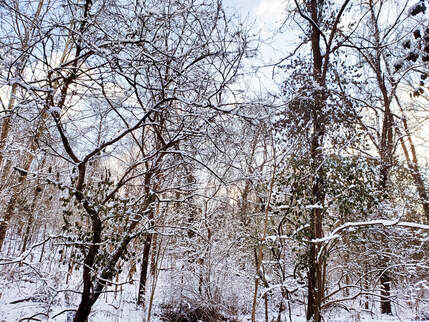 I use stock images sometimes- but actually took these myself! Goose Creek trail. I use stock images sometimes- but actually took these myself! Goose Creek trail. Historically speaking, January and I have not been friends. Blame it on the cold, the post-holiday letdown, or the fact that January is about as far as a month can be from October (except for November & December, but they get a pass on account of holidays). For the seven years I lived in Arizona, January and I had a respite from our adversarial relationship. In the southwest, that window of time is a sparkling paradise -- perfect for drinking spicy Mexican lattes and hiking desert mountains under crayon-blue skies dotted with hot air balloons. And also, you know, a nice break from the other months that will melt your face right off and not even feel sorry about it. It's possible that, since leaving that winter utopia, I've felt even more frigid towards the first month of the year. And January in a pandemic? I've been dreading it, hard. The cold and the gray, plus the isolation and anxiety, and the lack of things to look forward to... It felt like a lot this year. The attempted overthrow of the government didn't help, but at least I saw that one coming. I looked at my calendar this week and noted that January is ALMOST OVER! And yet... winter is not done, by a long shot. Neither is the pandemic. Or the escalating political discord that really piles on to the usual heaviness of the season. We've got miles to go yet, on all counts, and we all need some coping devices to get us through. I'm not telling anybody how to live their lives, but here are a few of the daily verbs that have been holding me up through this season:
Speaking of reading--my daughter has been reading The Long Winter, a book in the Little House/Laura Ingalls Wilder series. I never really got into those as a kid, other than little snippets here and there. But I'm familiar with the gist of this one: it's winter, it's cold, they have no food, everything is terrible, they almost die. The end. And get this-- my kid has read this before and is reading it again on purpose. For fun. I said "why in the world would you want to read that right now?? Isn't it so depressing?!" And do y'all know what this tiny thing said to me? She said, "Well, parts of it are sad. But it makes me feel happy because in the end... it's spring." Well. Let the child preach. Here in my end of Kentucky we got a beautiful big snow this week-- the kind that looks nice and is fun to play in but melts off the road quickly. I walked over to creek (crick) in my neighborhood just to stand there on the path in a quiet, wooded place for minute. The canopy of icy branches, almost cartoonishly magical, reminded me that winter does have its own kind of beauty some days, its own spiritual gifts, if we can be wise enough to witness. Meanwhile, the water running over the rocks of the creek bed sang its own song -- spring is coming. Seems like my kid and my creek have the same good news to share this week. Finish the book. Stay in this story, however sad and heavy it feels. In the end, it will be spring. |
Archives
March 2023
Categories
All
|
